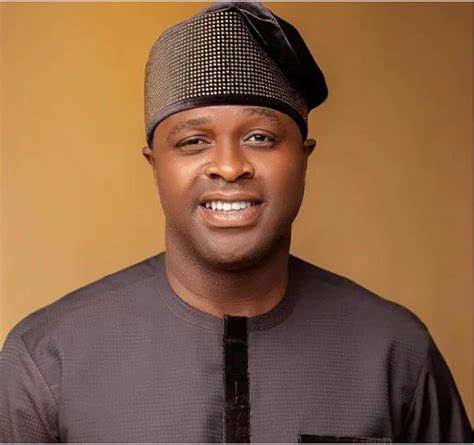Femi Adebayo shares his latest film, Seven Doors, was inspired by the life of a king he was closely connected to, focusing on culture, love, and tradition.
In an engaging interview with, Adebayo explained how this project aims to celebrate and preserve Nigeria’s rich cultural heritage.
The cultural significance of “Seven Doors“
Adebayo emphasized that preserving Nigeria’s culture is vital. “It’s extremely important to preserve our culture. Creating films that highlight our cultural heritage is one of the ways to ensure it’s passed down, so future generations can enjoy and learn from it,” he said.
For Adebayo, storytelling is more than entertainment; it’s a means of educating and keeping traditions alive.
“I was fortunate to be close to a particular king, and his experiences sparked the idea and concept of Seven Doors,” Adebayo revealed. “Many people view our kings as mini-gods, which they are, but they often forget that they are human beings with real struggles. They face numerous challenges, both before and after ascending to the throne. That is precisely what we explored in the movie.”
Through Seven Doors, Adebayo seeks to depict the human side of royalty—highlighting their personal struggles, conflicts, and the weight of leadership. “Our kings are not just revered figures—they are human, and they have to navigate the same challenges as everyone else,” Adebayo explained.
Story of love and tradition
Beyond its cultural exploration, Seven Doors is centered around a powerful narrative of love. Adebayo described the film as a “love story.” “I also want to convey that love conquers all. In situations where love conflicts with tradition, love will always prevail,” he emphasized.
Adebayo believes this message is particularly relevant in a world where tradition sometimes clashes with modern values and individual desires. “We live in a time when there’s often a battle between tradition and personal freedom,” he said. “In “Seven Doors”, love triumphs over those conflicts.”
This central theme of love is not just about romantic relationships, but a broader message of connection, unity, and the strength that love can offer in the face of adversity. “The film showcases how love can heal and bring people together, even in the most challenging circumstances,” Adebayo added.
The controversial scenes
One of the most talked-about scenes in Seven Doors is the kissing scene between Adebayo and co-star Chioma Chukwuka. Addressing the reaction to this scene, Adebayo stated, “I was simply portraying the role, focusing on character analysis and interpretation.”
Adebayo emphasized that as an actor, his goal is to bring authenticity to the characters he portrays. “I wasn’t necessarily thinking about the public reaction,” he said. “My job is to interpret the role as truthfully as possible.”
However, he also admitted that his favorite scene wasn’t the kissing one, but a more intense, symbolic moment involving chiefs being beaten. “For me, the most impactful scene was when they had to lay the chiefs on the floor and beat them. I wasn’t even part of that scene,” Adebayo explained.
Preserving heritage through storytelling
Adebayo firmly believes that storytelling is a crucial way to preserve Nigeria’s cultural heritage. “Films like “Seven Doors” play a significant role in preserving our culture,” he said. “It’s about ensuring that our traditions, struggles, and triumphs are documented for generations to come.”
For Adebayo, the film isn’t just entertainment—it’s a form of documentation, a way of ensuring that the stories of past generations are not forgotten. “I see “Seven Doors” as a contribution to the greater narrative of our culture,” he said. “It’s not just about creating art; it’s about making sure that future generations can learn from and connect with our history.”
Vision for the future
Adebayo’s vision for the future is one where African cinema continues to thrive, focusing on themes that resonate with both local and global audiences. “I want to contribute to a cinema that reflects our realities, values, and traditions,” he said.
With Seven Doors, Adebayo aims to inspire others to tell stories that not only entertain but also educate. “Cinema has the power to shape how people view the world,” he explained. “Through “Seven Doors”, I hope to spark conversations and encourage others to explore their cultural roots through storytelling.”
As Femi Adebayo continues to make strides in the film industry, his focus on cultural preservation and the power of love remains at the heart of his creative journey. Seven Doors is not just a film—it’s a statement of his commitment to telling authentic African stories.
Read Also: MOVIE REVIEW: Femi Adebayo’s Seven Doors stunning blend of culture, spirituality

